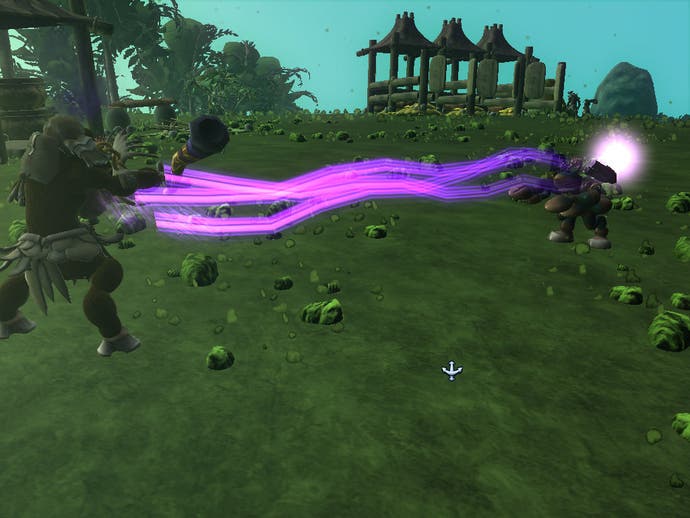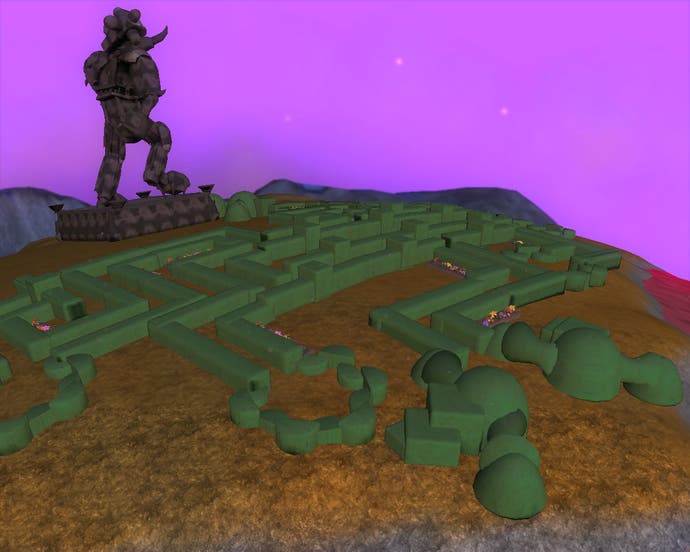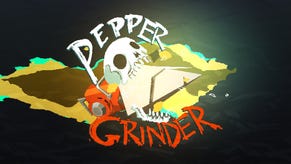Spore: Galactic Adventures
Space invaders.
My first captain of infinite space got his oversized hat inextricably caught in a low-hanging tree. The second saviour of the known universe got atomised by an exploding custard pie he dropped on his foot. By the time I restarted the training mission, for the third attempt, I was prepared to give up the whole idea of user-generated content as a bad joke. After all, if the Maxis Illuminati couldn't make a mission, the first tutorial in the game, that didn't piss you off entirely, how could they expect anyone else to?
Galactic Adventures continues the overriding Spore theme of user-generated content, extending it to level-editing (though in Spore's case, it's more planet-editing). And hence turning the endless drab Gnosh-infested wastelands (oh, those blasted Gnosh. If one thing broke Spore, beyond the overly basic gameplay at every level, it was the endless depredations of tedious enemy races nicking your planets as your miniscule empire expanded, making progression more depressing than hitting 29 in Kudos) into a quest-packed paradise, replete with random missions generated by your fellow users.
When they get there. At the moment there are a few Maxis missions, a bunch of confused journalists uploading bizarre half-hearted test pieces and a handful of Robot Chicken-created episodes. Including one about a war between bananas and monkeys which, apparently having been made in half a day, is the best advert for what you can do with the game if you put your mind to it.
There are two halves to this expansion; the main thrust of the game is beaming down to a planet, sometimes accompanied by crewmates chosen from your allies, to take part in whatever fiendish plot some fellow gamer has conjured up. You create a captain by customising a member of your race (in the main space game) or by starting from scratch (when playing one-off missions). Then you're dropped into the saccharine tutorial mission which features pink bunnies sat on toadstools dancing to acid funk in front of a fairytale castle. It's certainly a good advert for the creativity of Maxis employees, if not their sanity.

From that point on, GA reveals itself to be a classic role-playing game. In the main space phase, some of the missions from others races have become Galactic Adventures; alternatively, you can just play them as standalone adventures from the main Spore universe interface. Once in you can wander the planet, get Sim-babbled at by the natives (the curse of the silent protagonist strikes again, as these are mere monologues devoid of interaction), fight things, use things on things, and eventually complete the adventure. The missions are simple, often frustrating - because of the complexity of the simulation they've been dropped into - and sometimes uproariously funny.
Your captain gets a certain number of points from each mission completed. And what do points mean? Things that have position but not extension? No - prizes! You can trade these points in for increasingly-cool new upgrades that can then be equipped on the inventory (customisation) screen or used in the main galactic war. Yes, it's a bit like a Star Trek / Mass Effect RPG, with your bizarre avatar playing the square-jawed Kirk / Shepard role.

The other part of the game is the lovely editor, and it's by far the most interesting element as well as the largest. The user interface for the mission editor is really well-explained, with a step-by-step tutorial that an eight year old could complete. I'm a veteran of many map-making packages and in-game editors, from Quake, The Movies and Starcraft to Neverwinter Nights and City of Heroes: Mission Architect, and this is the simplest I've encountered - though that's not to say it isn't powerful too.
The initial tutorial allows you to easily make a simple diplomacy mission, but there's a suprisingly large amount of flexibility to the tools and they can be used to make just about any adventure or RPG game going. We're expecting to see a world of remakes and parodies in there fairly soon.









